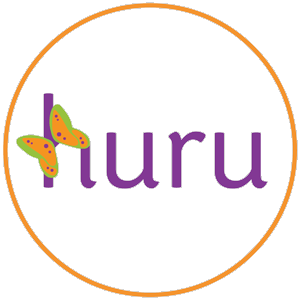Giving Story: Tom and Mary’s Journey to Huru
Background
At Huru, we believe in the power of individuals to create lasting change—and donors like Tom and Mary are living proof of that belief. For over a decade, their unwavering support has fueled our mission to empower girls, and their generosity has directly changed the lives of more than 800 girls and young women.
These 800 girls are no longer bound by by stigma or held back by their periods. They’re in school, learning with confidence, dreaming boldly, and building brighter futures—all due to the profound impact of Tom and Mary’s giving.
Tom and Mary’s Giving Story
As we walked through Madison Square Park, I turned to my wife, Mary, and said, “I never heard a man…” and she finished my thought, “…who spoke so clearly and compassionately about menstruation.”
Dennis Pinto, Managing Director of Micato Safaris, had invited us to visit in New York, and during our conversation he shared Huru’s story. I had always admired Micato’s commitment to philanthropy, but that day, I saw that it wasn’t just something they did—it was central to who they are.
Maybe you’re familiar with the problem, but Mary and I weren’t. That day we learned, for millions of girls across Africa, menstruation creates a barrier to education. Dennis calmly and clearly explained, period supplies are prohibitively expensive, and many girls miss school every month, fall behind, and sometimes drop out entirely. He explained that this isn’t just about missed school days; it’s about the stigma, shame, and lack of health education that make life harder for these girls. Without the basic resources Huru provides, they’re more vulnerable to issues that no girl should have to face.
When Mary and I first visited Kenya with Micato Safaris more than a decade ago, we saw the early beginnings of Huru. Back then, Huru Kits—backpacks containing reusable pads, panties, and educational materials—were made in a small building on the grounds of the Harambee Centre, a safe learning space within one of Nairobi’s most impoverished communities. On our most recent visit a few years ago, we were thrilled to see Huru’s growth into a bright, bustling facility in Nairobi, producing Huru Kits at a much larger scale.
The impact is undeniable. Huru has provided 691,000 girls and young women with menstrual health education, distributed over 2.6 million reusable pads, and given out more than 300,000 Huru Kits (comprised of a colorful drawstring backpack with six reusable pads; three pairs of underwear; detergent-grade soap for washing pads; a resealable waterproof bag for safe storage of used pads; and educational materials on HIV prevention and reproductive and sexual health).
To many of us, me included, our and Africa’s and the world’s social ills seem intractable, unsolvable. But Huru is a bright light. A Huru Kit is a solution that’s simple, effective and deeply impactful. It solves a problem Mary and I had never thought of until that eventful and enlightening afternoon with Dennis.



